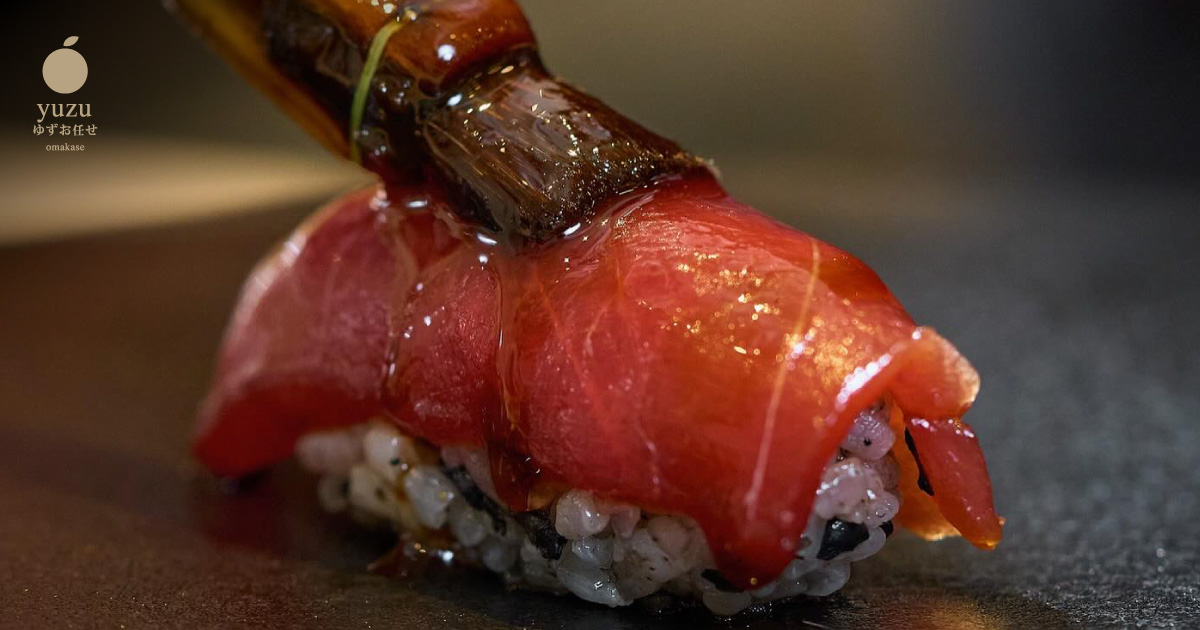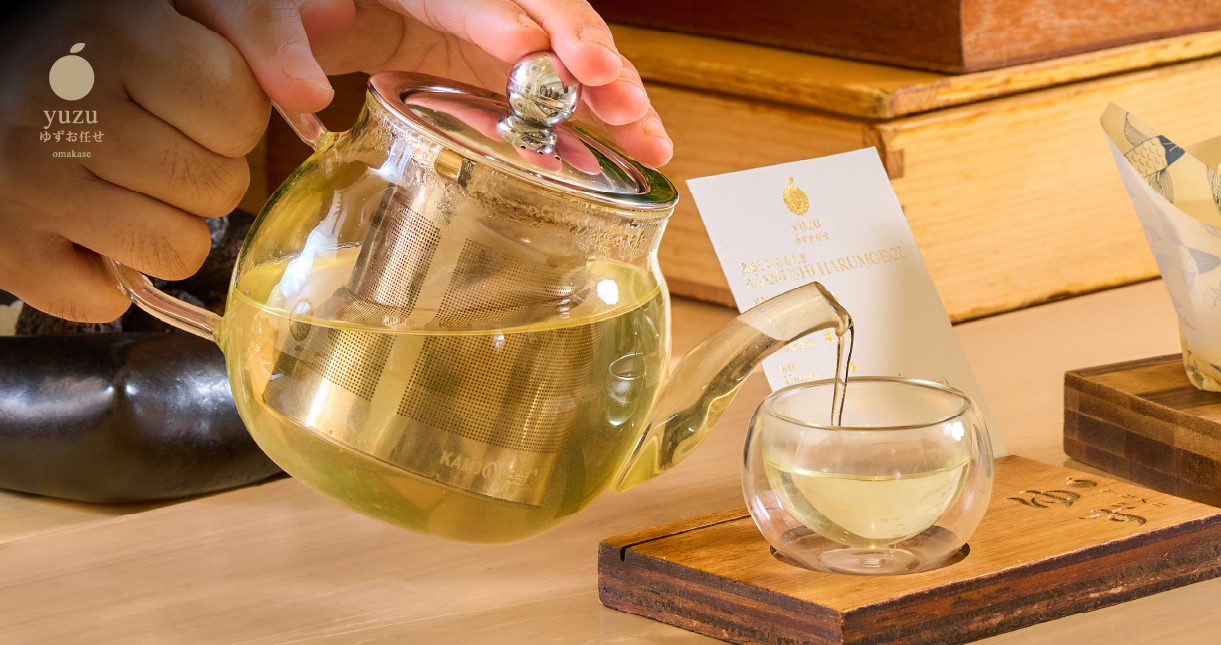
Japanese Tea: A Healthy Pairing with Sushi
The Perfect Harmony of Tea and Sushi In Japanese culture, the pairing of tea with sushi is more than a dining tradition—it’s a carefully crafted synergy that enhances both taste and well-being. While sushi offers a blend of fresh, nutrient-rich seafood and perfectly seasoned rice, Japanese tea brings balance with its antioxidant properties and refreshing flavors. Together, they create a culinary experience that is not only delicious but also deeply nourishing.
Well-Being ● 2024 Dec 7
Japanese Tea: A Healthy Pairing with Sushi
At Yuzu Omakase, the art of pairing sushi with Japanese tea is celebrated, offering diners a holistic meal that satisfies both the palate and the body. In this article, we’ll explore the health benefits of Japanese tea and why it’s the ideal companion for a sushi meal.
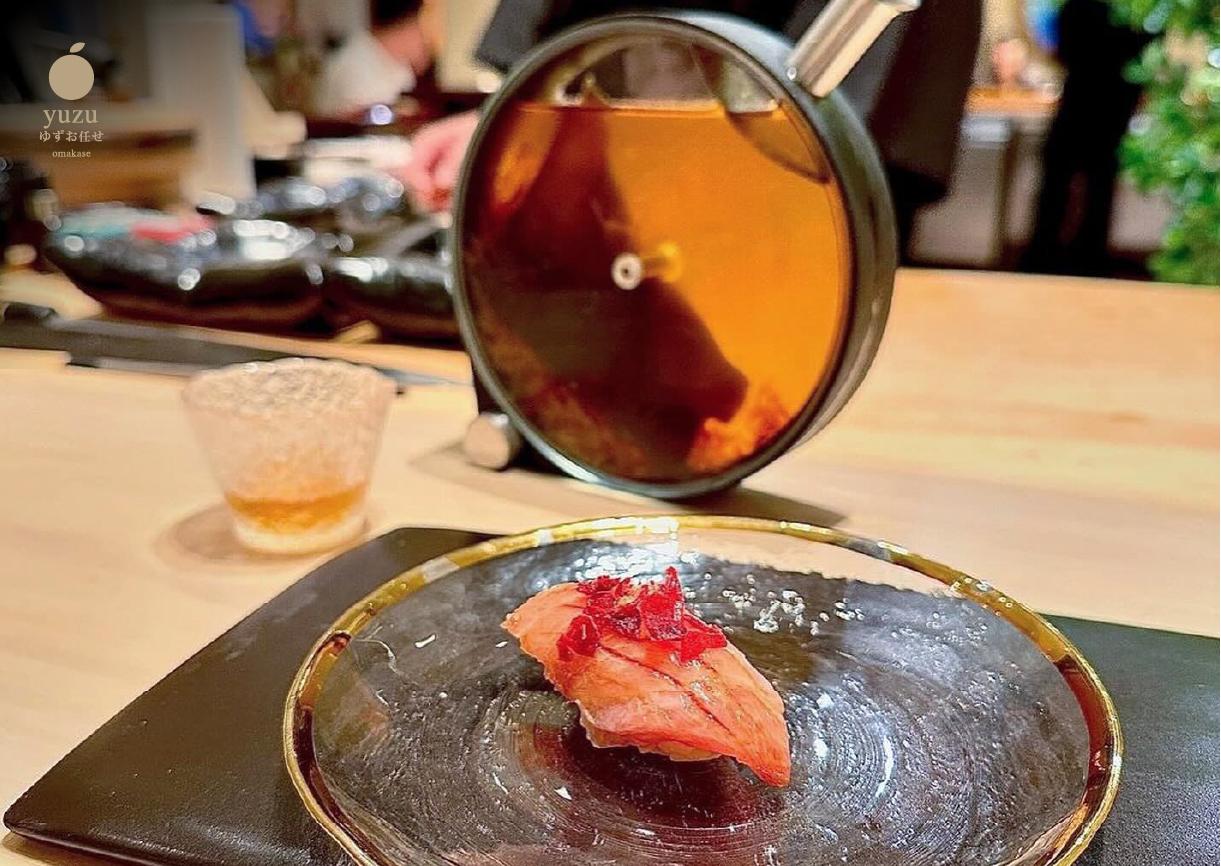
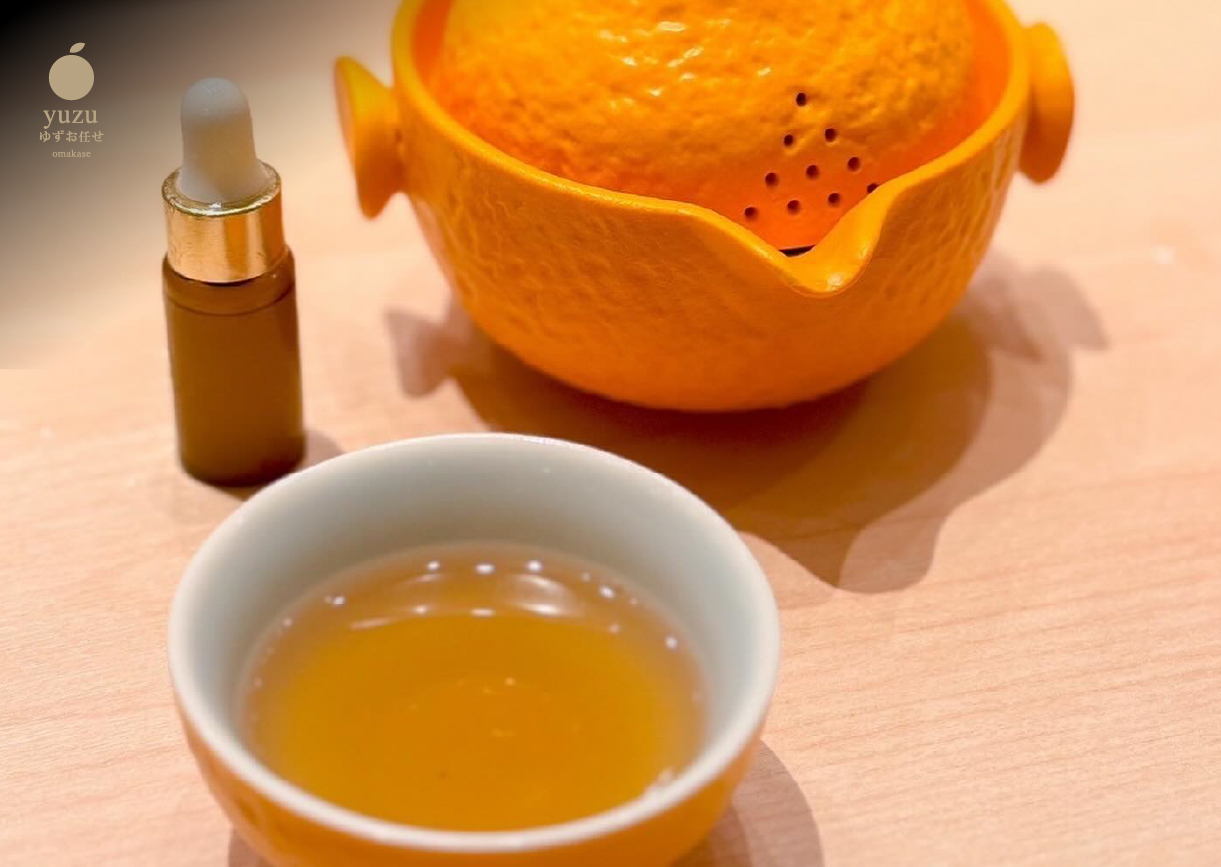
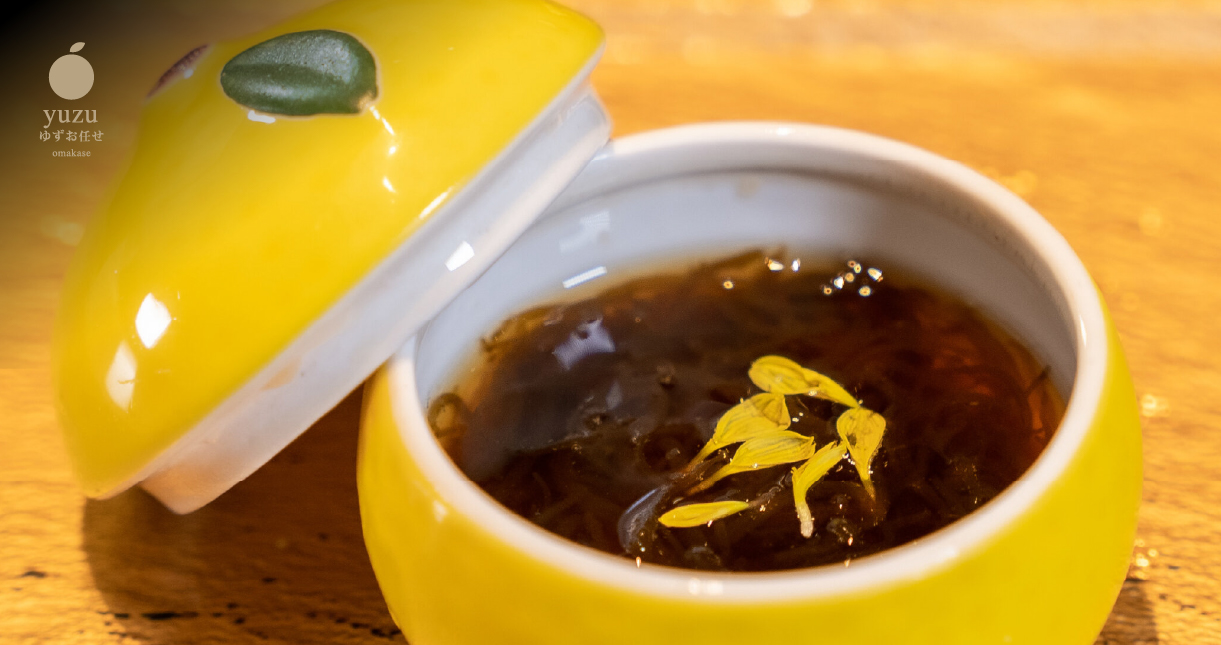
1. The Tradition of Tea in Japanese Cuisine
A Ritual Rooted in History
Japanese tea has been an integral part of the country’s culinary heritage for centuries. From the formal tea ceremony (chanoyu) to everyday meals, tea is revered for its ability to cleanse the palate, aid digestion, and provide a sense of relaxation.
In sushi dining, tea enhances the subtle flavors of the seafood and rice while preparing the palate for the next bite. This tradition continues to be a hallmark of omakase dining, reflecting the Japanese philosophy of balance and harmony.
Cultural Highlight
The pairing of tea with sushi reflects the Japanese approach to food as a sensory and mindful experience.
2. Types of Japanese Tea That Pair Well with Sushi
Sencha: A Popular Favorite
Sencha, Japan’s most commonly enjoyed green tea, is characterized by its vibrant, grassy flavor and moderate caffeine content. Its slight bitterness balances the richness of fatty fish like tuna or salmon, making it a versatile choice for sushi pairing.
Health Benefits
Sencha is high in catechins, powerful antioxidants that help combat free radicals and support heart health.
Matcha: A Bold and Creamy Option
Matcha, a finely powdered green tea, offers a bold flavor profile with a creamy texture. Its umami notes complement sushi dishes like uni (sea urchin) or otoro (fatty tuna), enhancing their richness while providing a refreshing contrast.
Health Benefits
Matcha is packed with L-theanine, an amino acid that promotes relaxation and mental clarity, making it an excellent choice for mindful dining.
Hojicha: A Roasted Delight
Hojicha, a roasted green tea, is known for its nutty, toasty flavor and low caffeine content. Its warmth pairs beautifully with seared sushi like aburi salmon, adding depth to the overall meal.
Health Benefits
Hojicha is gentle on the stomach and aids digestion, making it a perfect choice for those enjoying an indulgent sushi feast.
Genmaicha: A Unique Blend
Genmaicha, a combination of green tea and roasted rice, has a distinct nutty flavor that complements lighter sushi dishes such as whitefish sashimi or vegetable rolls. Its subtle sweetness balances the delicate flavors of these dishes.
Health Benefits
The roasted rice adds a touch of fiber, while the tea provides antioxidants that support overall health.
3. Health Benefits of Japanese Tea
Rich in Antioxidants
Japanese tea, particularly green tea, is loaded with antioxidants like catechins and polyphenols, which help reduce inflammation, improve skin health, and lower the risk of chronic diseases.
Example
A cup of sencha during a sushi meal provides a refreshing dose of antioxidants that complement the health benefits of omega-3-rich seafood.
Aids Digestion
Tea aids in breaking down fats and proteins, making it an excellent pairing for sushi, especially rich dishes like wagyu beef nigiri or seared salmon belly. Its natural enzymes promote smoother digestion and reduce post-meal heaviness.
Digestive Highlight
Hojicha, with its roasted profile, is particularly soothing for the stomach.
Boosts Metabolism
The catechins in green tea, combined with its natural caffeine content, are known to boost metabolism, helping to burn calories more efficiently. When paired with the nutrient-dense, low-calorie nature of sushi, this creates a meal that is both satisfying and weight-conscious.
Promotes Relaxation and Focus
Compounds like L-theanine in Japanese tea help balance the stimulating effects of caffeine, promoting a sense of relaxation without drowsiness. This makes tea an ideal choice for enhancing the mindful and immersive experience of omakase dining.
Relaxation Highlight
A cup of matcha before or during a sushi meal sets the tone for a calm, focused dining experience.
4. Why Tea Complements Sushi Perfectly
Palate Cleansing
The slight astringency of Japanese tea acts as a natural palate cleanser, cutting through the richness of the seafood and rice. This ensures that every bite of sushi feels as fresh and vibrant as the first.
Example
A sip of sencha between courses resets the taste buds, enhancing the flavors of each new dish.
Enhancing Flavors
The umami in Japanese tea enhances the savory notes in sushi, creating a harmonious balance of flavors. This synergy elevates the dining experience, allowing diners to appreciate the intricacies of both the tea and the sushi.
Flavor Highlight
The nutty undertones of genmaicha pair beautifully with the sweetness of tamago (egg sushi).
Supporting Digestive Health
As a natural digestive aid, tea complements the clean, nutrient-dense nature of sushi, ensuring a meal that feels light and energizing rather than heavy or overwhelming.
5. The Yuzu Omakase Approach to Tea and Sushi
Carefully Curated Pairings
At Yuzu Omakase, the tea selection is thoughtfully curated to complement the flavors and textures of the omakase menu. Guests are guided through the pairing process, with recommendations tailored to their chosen dishes.
Example Pairing
Matcha with uni nigiri highlights the richness of the sea urchin while providing a refreshing contrast.
Focus on Quality
Just as Yuzu Omakase sources its seafood from trusted markets, it also selects only the finest Japanese teas, ensuring that every cup matches the high standards of its sushi offerings.
Quality Highlight
The teas served at Yuzu Omakase are sourced directly from Japan’s premier tea-growing regions, such as Uji and Shizuoka.
6. Tips for Enjoying Tea with Sushi
Savor the Contrast
Alternate between bites of sushi and sips of tea to fully appreciate how the flavors enhance each other.
Pair Bold Flavors with Subtle Teas
Match richer sushi with lighter teas like sencha or hojicha to balance the intensity.
Experiment with Combinations
Explore different teas with various types of sushi to discover your personal favorite pairings.
Conclusion: A Perfect Partnership
The pairing of Japanese tea with sushi is a timeless tradition that enhances both the flavor and health benefits of the meal. At Yuzu Omakase, this harmony is celebrated, offering diners a thoughtfully curated experience that reflects the best of Japanese culinary culture. From the antioxidant-rich properties of sencha to the palate-cleansing qualities of hojicha, every cup of tea complements the omakase menu, creating a holistic dining journey that nourishes the body and soul.
Book your table today at Yuzu Omakase to experience the perfect pairing of sushi and tea in Bangkok’s premier omakase destination.

RELATE



